Psychology > QUESTIONS & ANSWERS > NCE Exam: Lifestyle and Career Development with COMPLETE SOLUTION (All)
NCE Exam: Lifestyle and Career Development with COMPLETE SOLUTION
Document Content and Description Below
Holland's 6 personality types Correct Answer: Artistic Social Realistic Investigative Conventional Enterprising (memory device, "AS RICE") Roe, Brill, and Holland Correct Answer: Classified... as personality (or structural) theorists. Holland's 'social' type Correct Answer: People who prefer to solve problems using interpersonal skills and feelings. Holland's 'enterprising' type Correct Answer: People who like to sell to others or perform leadership tasks (i.e., Vice Prez of USA) A client who wishes to work on an assembly line would fit into Holland's _____ typology? Correct Answer: Realistic Holland's 'investigative' type Correct Answer: People who like to think their way through a problem. (i.e., scientist, engineer, mathematician, philosopher) Holland's 'artistic' type Correct Answer: People who tend to shun conformity as well as structure; emphasis on self-expression. A bookkeeper or clerical worker would primarily fit into Holland's ______ typology? Correct Answer: Conventional Holland's 'conventional' type Correct Answer: People who value conformity, structure, rules, and feel comfortable in a subordinate role. (i.e., statisticians, bank clerks) [Memory device: Conventional & Conformity both begin with C] Holland's theory of career development is a _________-based approach of ____ _____. Correct Answer: Personality, career choice Holland believed that most people are not pure personality types and thus can be described by a distribution of types such as Realistic, Social, Investigative (RSI). Correct Answer: ... Which model is the Strong Interest Inventory based upon? Correct Answer: John Holland's Holland believed a given occupation will tend to attract ____ with ________ _____________. Correct Answer: Persons with similar personalities Holland and Roe agree that early childhood development influences _____ _______ _________. Correct Answer: Adult personality characteristics Hoppock's theory is based on the work of ______ and is a personality approach like Holland's. Correct Answer: Henry Murray - created the "needs-press" theory and the TAT projective test. ___________ ______ ______ view career choice as an ongoing or longitudinal process rather than a single decision made at one point in time. Correct Answer: Developmental career theorists (pioneers were Ginzberg, Ginsberg, Axelrad, and Herma) Until _____, the trait-and-factor model of career counseling was king. Correct Answer: 1950 Ginzberg and colleagues now believe development of career choice is three things: Correct Answer: -process continues through life span -career choice decisions continue through life span -career choice is irreversible Ginzberg and associates identified three stages of career development: Correct Answer: -fantasy (birth to age 11) -tentative (11 to 17) realistic (age 17 to early 20s) Ginzberg, Ginsberg, Axelrad, and Herma Correct Answer: Developmental career theorists Believed career choice is irreversible and the result of compromises between wishes and realistic possibilities. Most popular developmental career theorists Correct Answer: Donald Super Super emphasizes ___ ___________. Correct Answer: the self-concept (i.e., individual chooses career which allows self-concept to be expressed) (Memory: Super and Self begin with S) Donald Super's 5 stages of career development Correct Answer: Growth (birth to age 14) Exploration (15-24) Establishment (24-44) Maintenance (44-64) Decline (65+) (memory: GEE MD) Developmental career theories (like Super's) emphasize __________ career-related behavior. Correct Answer: longitudinal Super's theory includes Correct Answer: the life-career rainbow Comprised or roles a person plays in all areas of life:parent, homemaker, worker, citizen, leisurite, student, child. John Crites Correct Answer: Researched the phenomenon of "career maturity" or "vocational maturity" Schlossberg's 5 factors of career development Correct Answer: Behavior as adult primarily due to social factors Behavior a function of one's life stage or age at other times Gender differences more powerful than age or stage difference Adults continually experience transitions requiring adaptation Identity, intimacy, and generativity are recurring themes in adulthood [Show More]
Last updated: 2 years ago
Preview 1 out of 11 pages

Buy this document to get the full access instantly
Instant Download Access after purchase
Buy NowInstant download
We Accept:

Reviews( 0 )
$10.50
Can't find what you want? Try our AI powered Search
Document information
Connected school, study & course
About the document
Uploaded On
Jan 07, 2023
Number of pages
11
Written in
Additional information
This document has been written for:
Uploaded
Jan 07, 2023
Downloads
0
Views
113

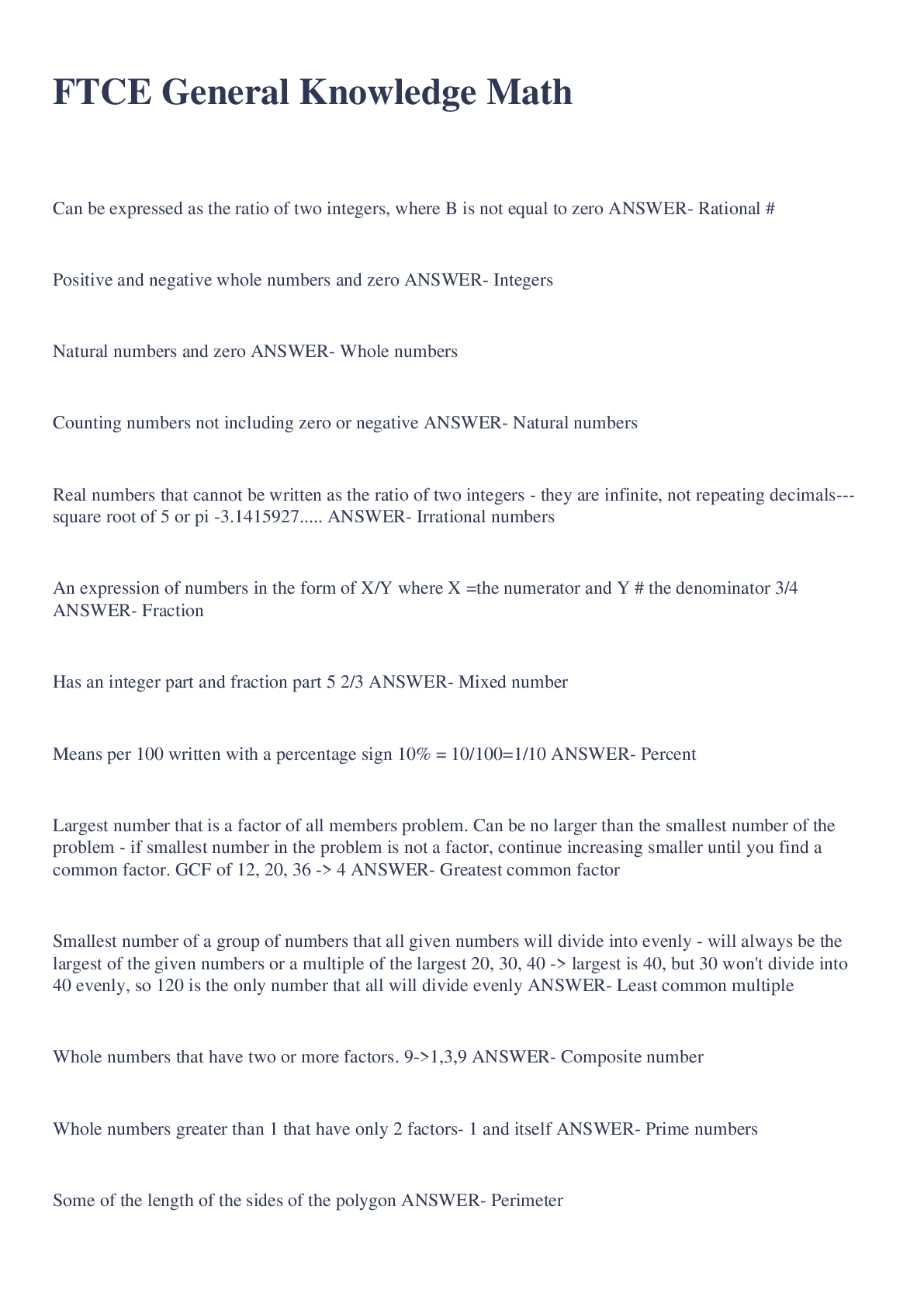
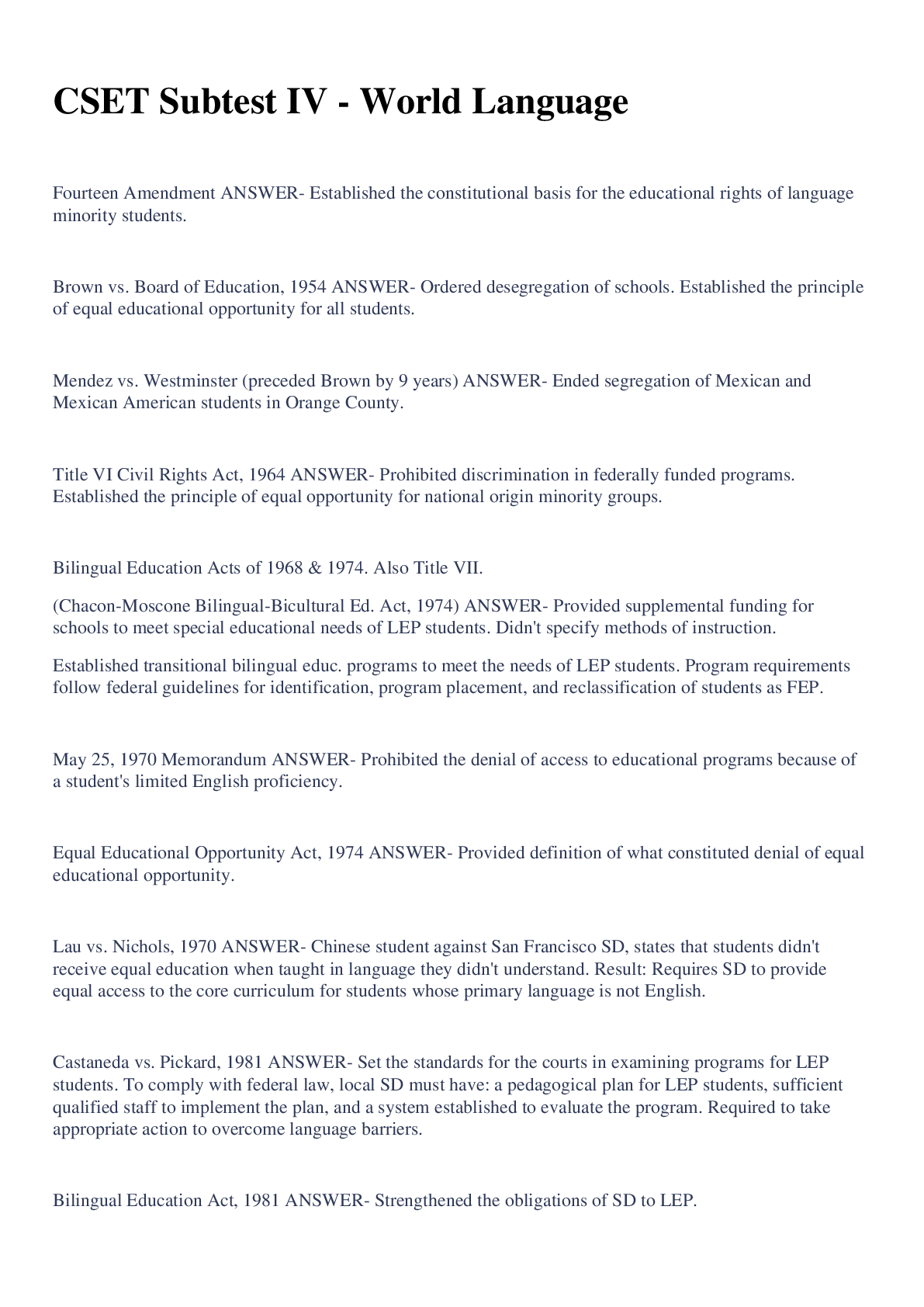
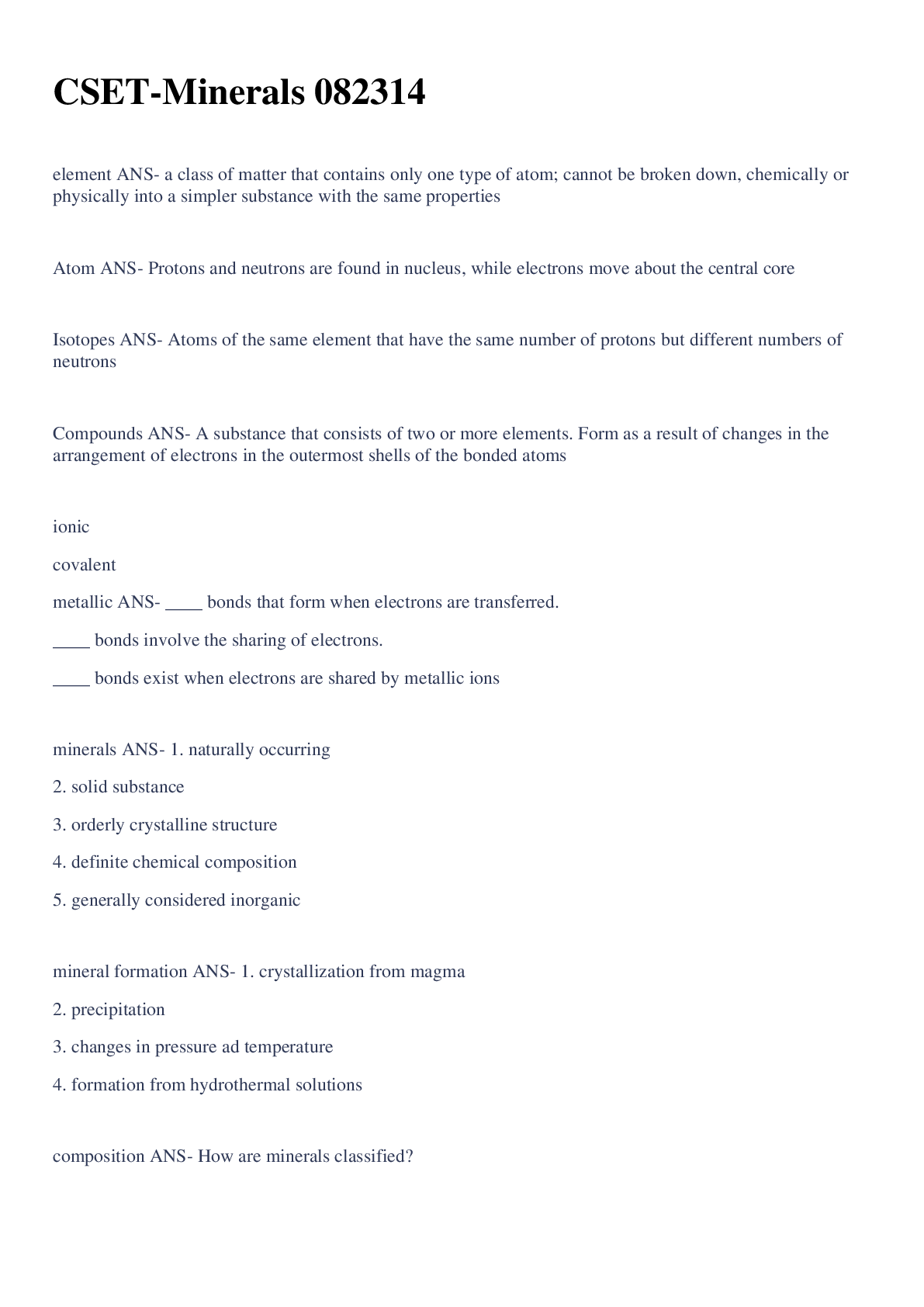
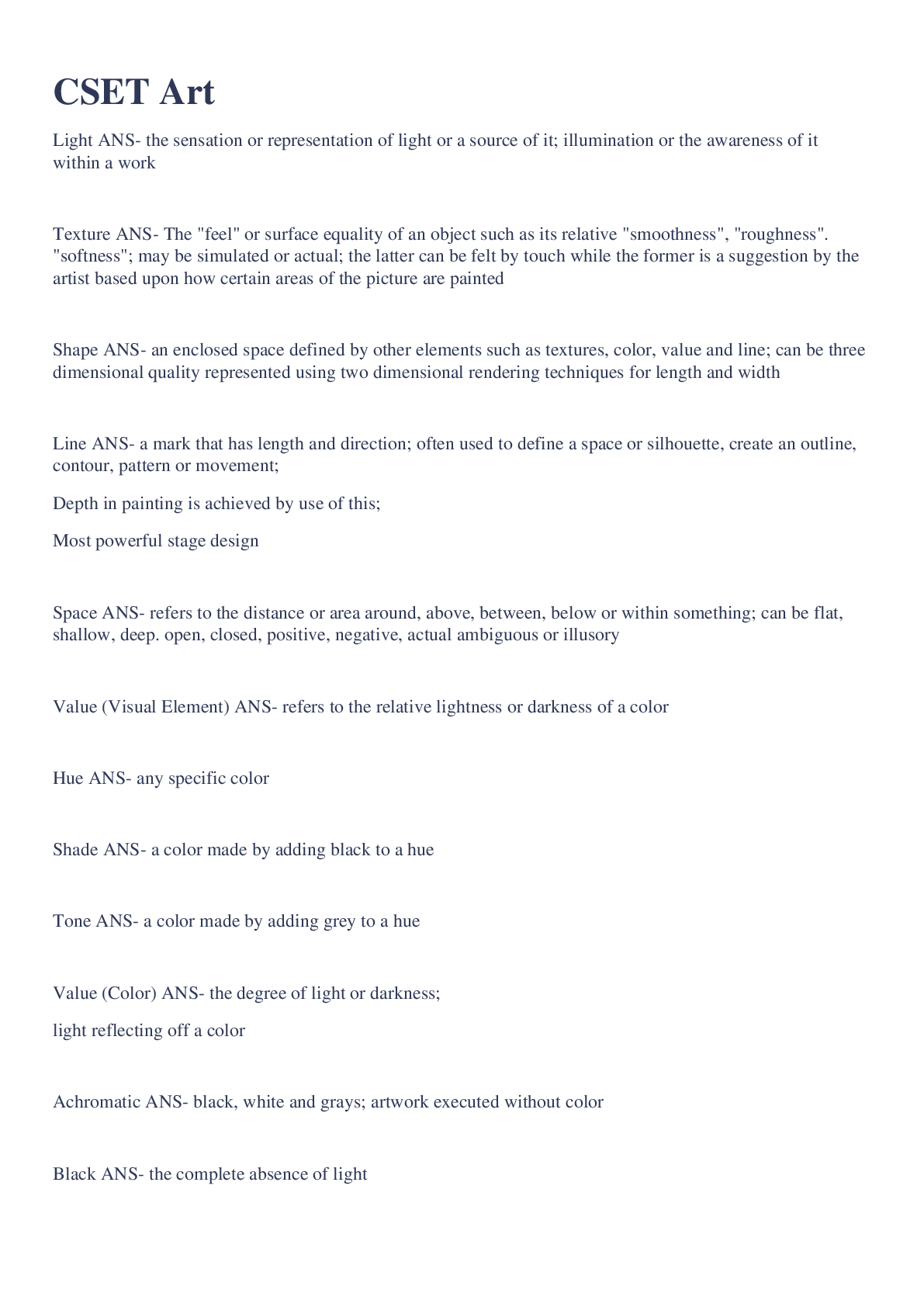
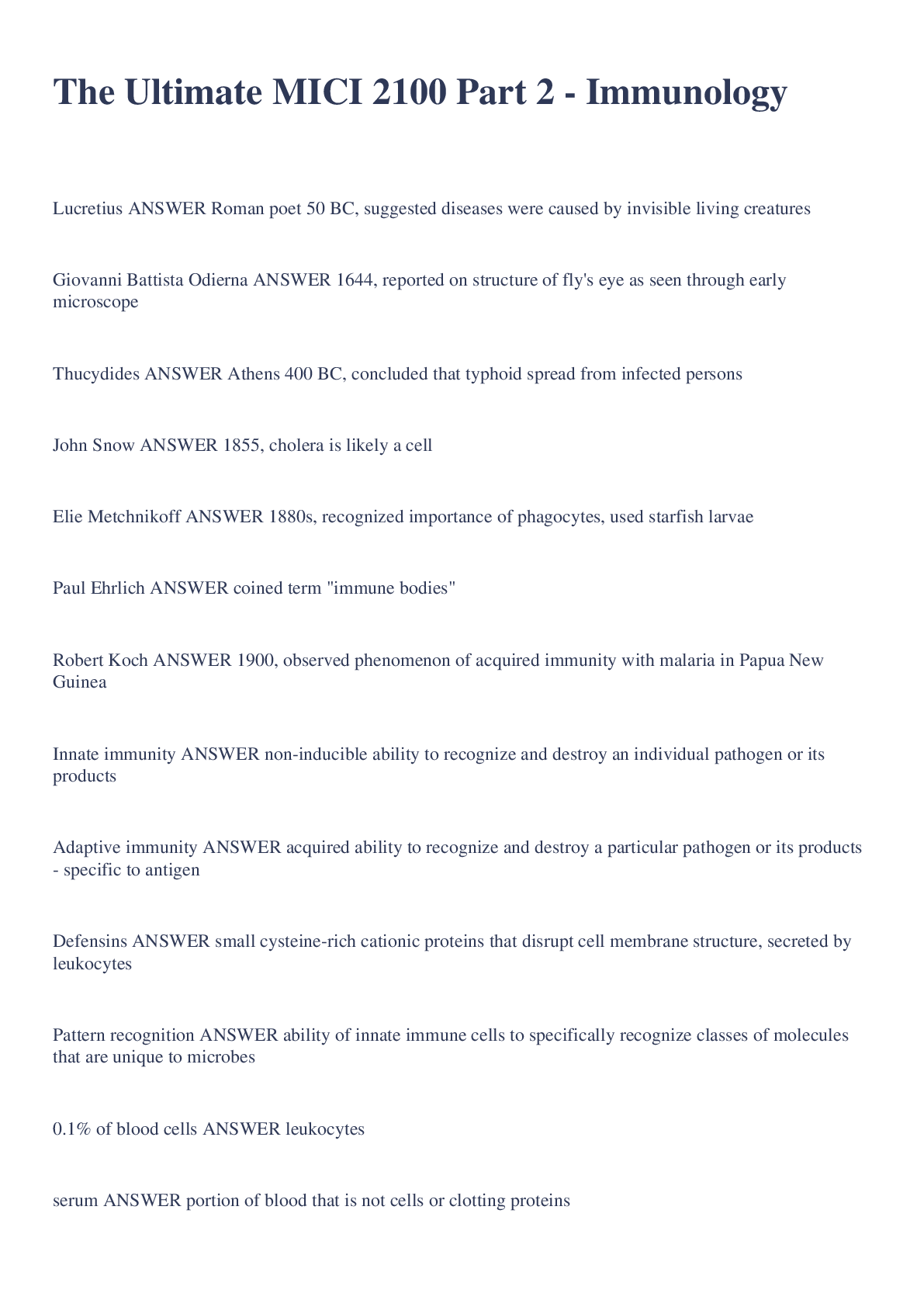
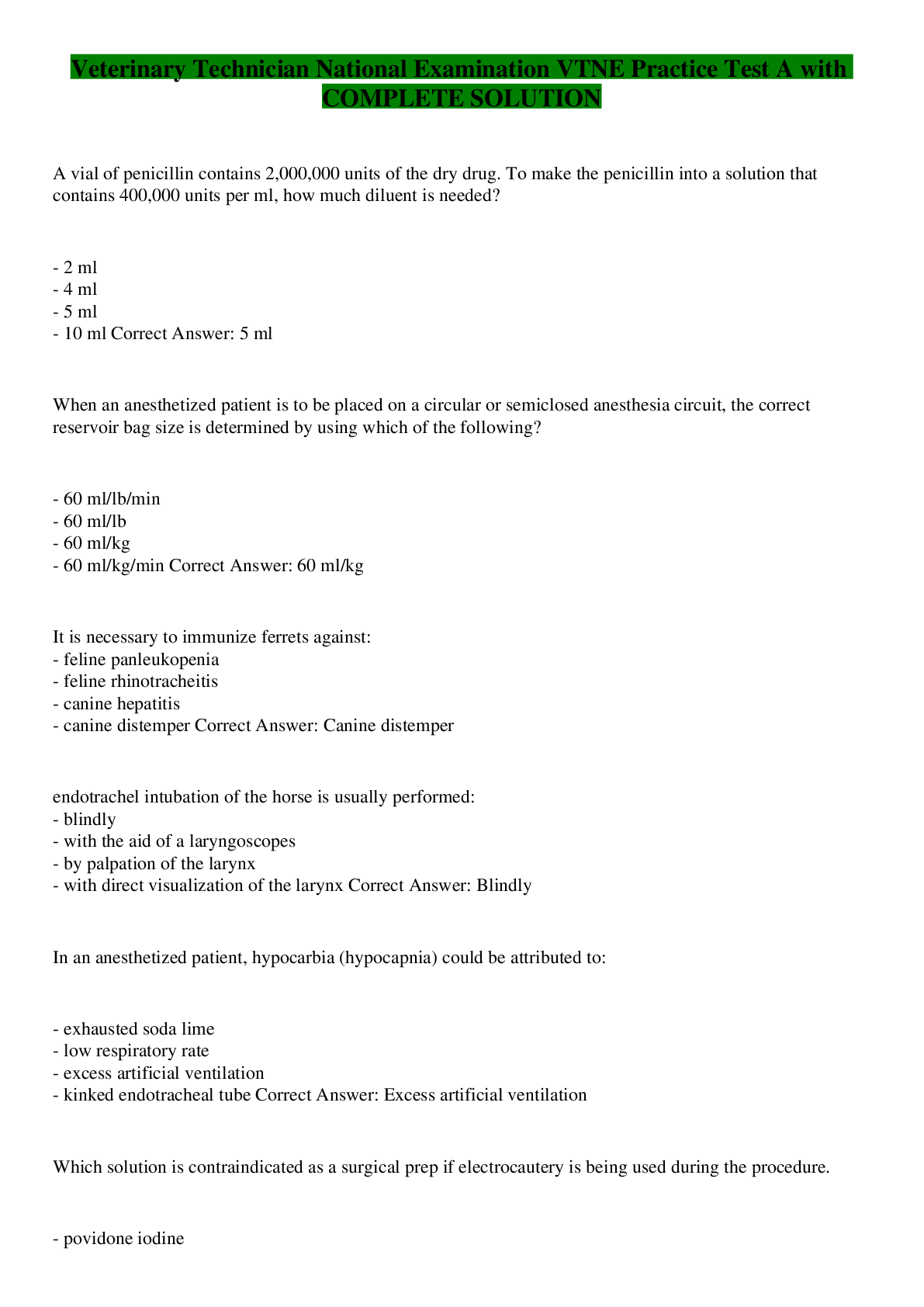
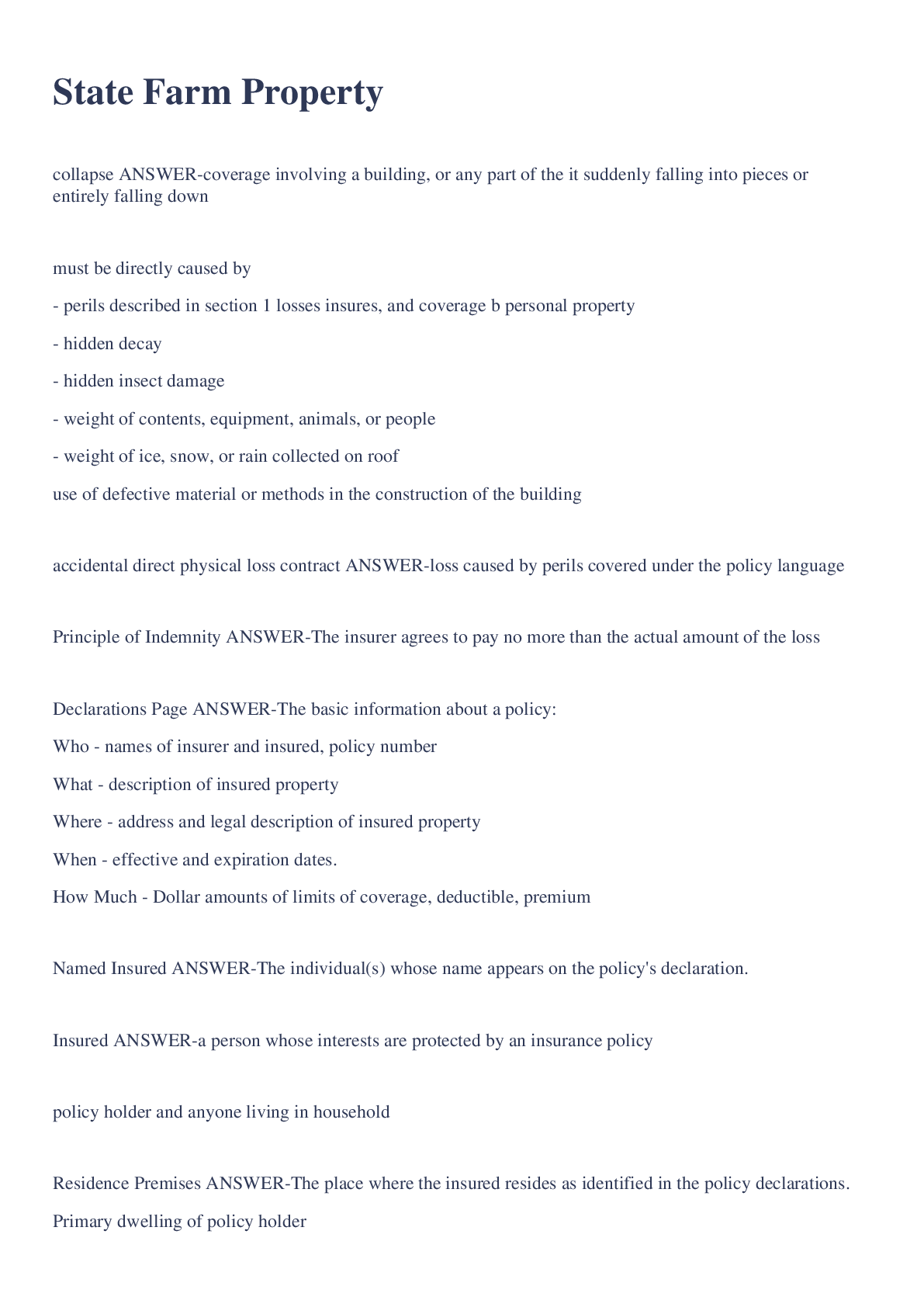
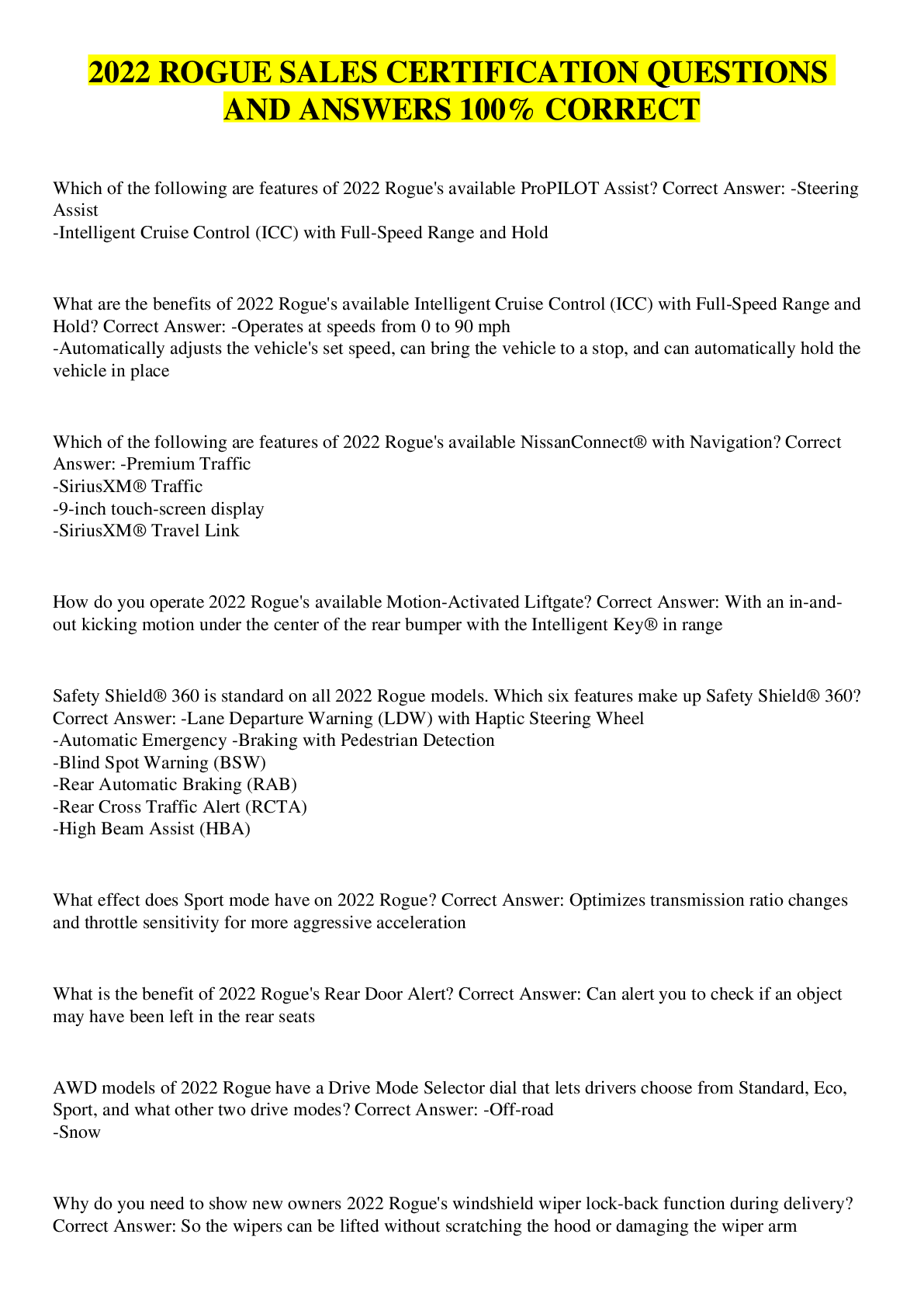

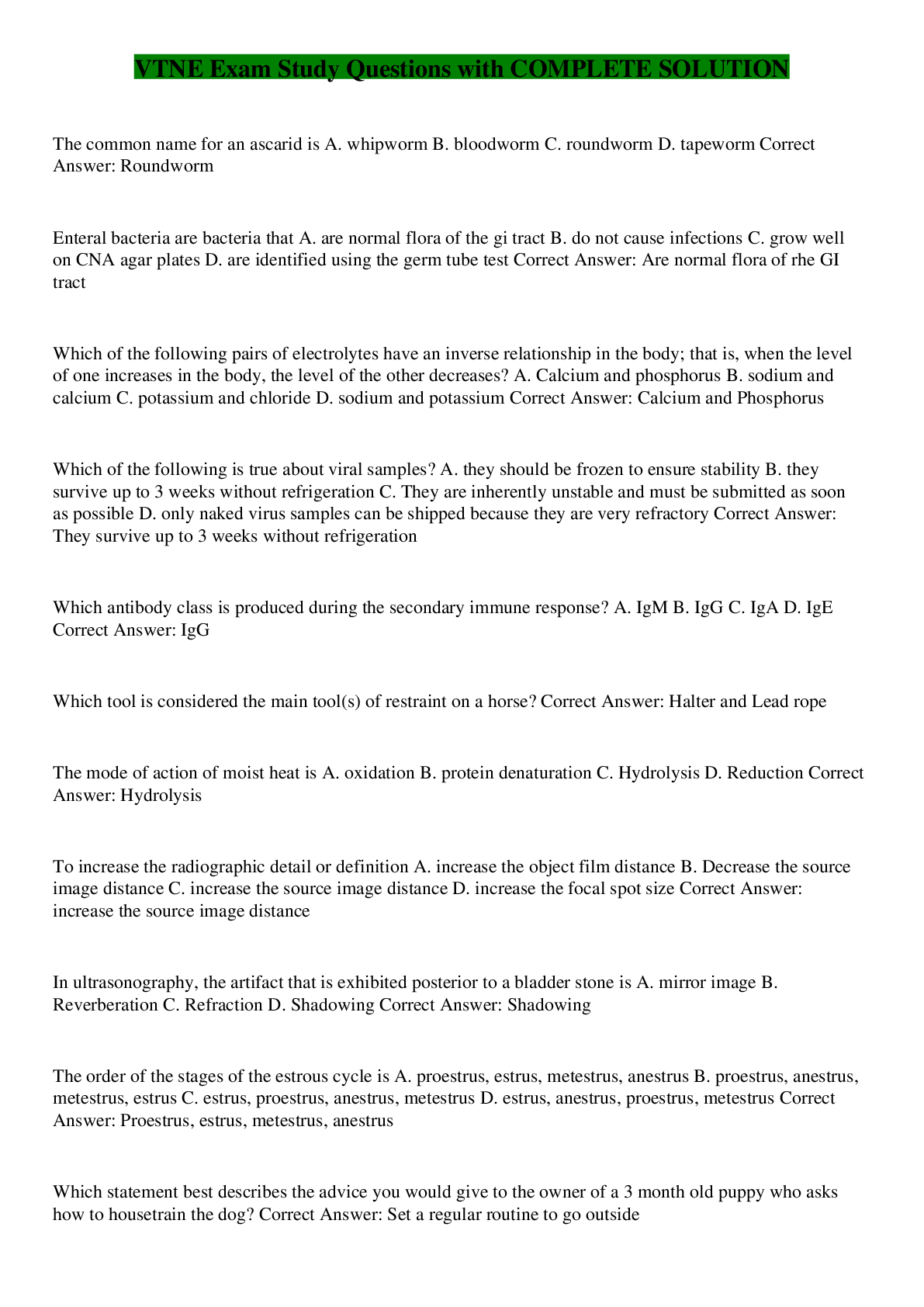

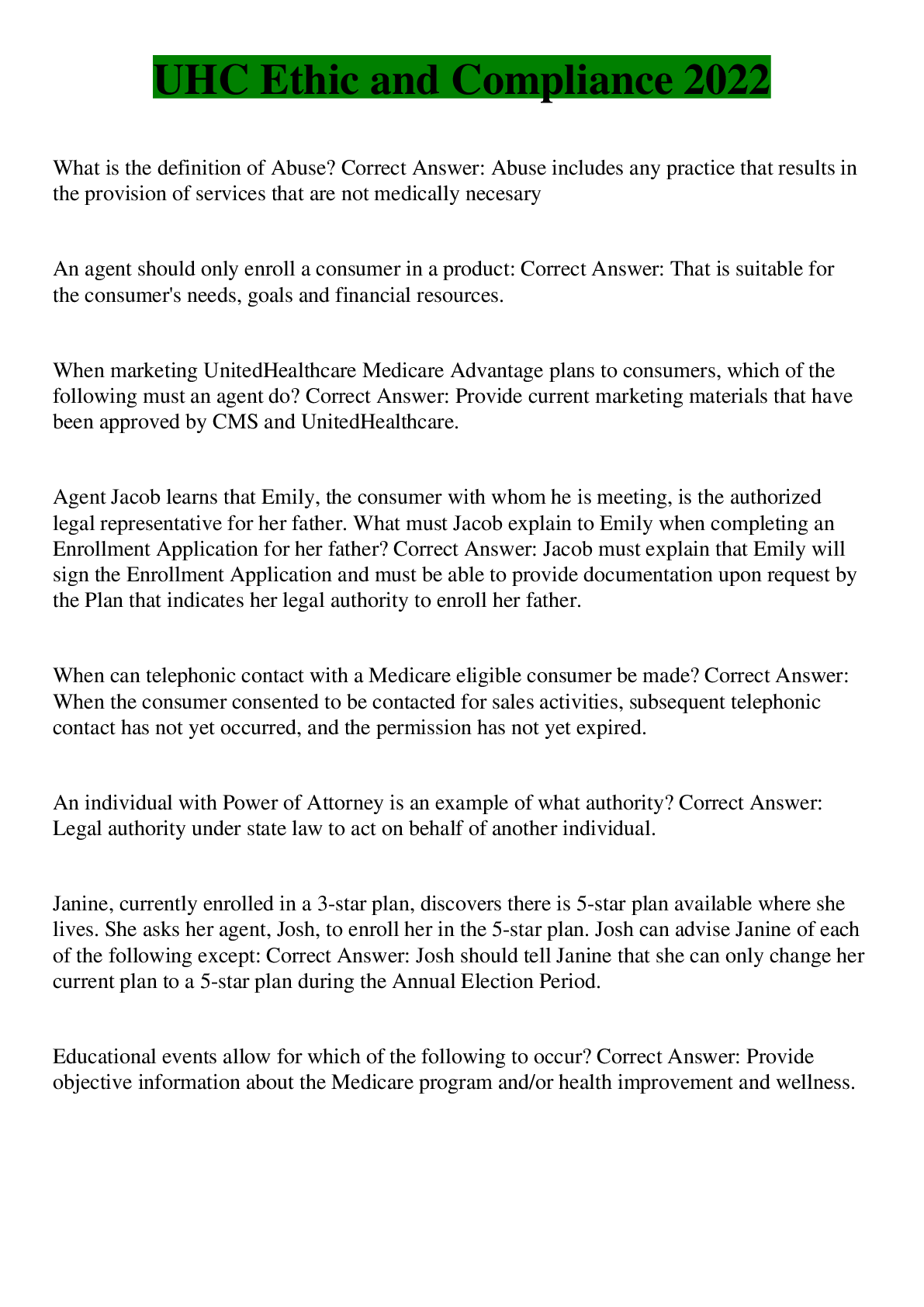
.png)
.png)


.png)

